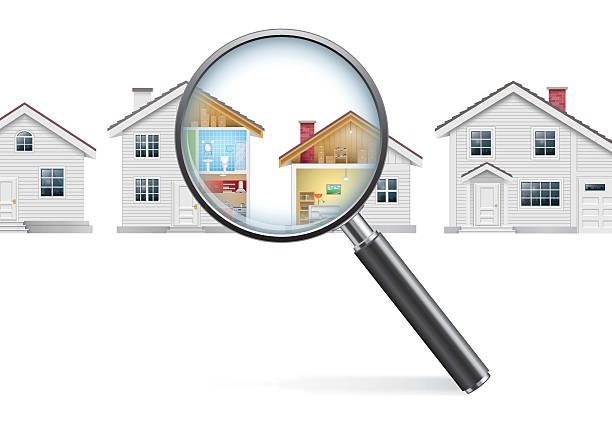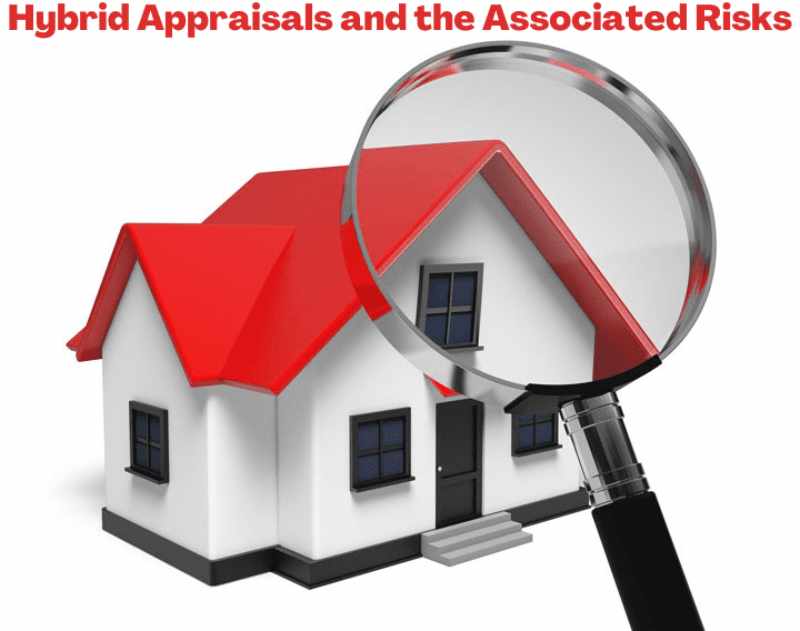In recent years, it has become common for lenders to obtain hybrid appraisals. While appraisers provide an essential service through their reports, this work comes at high costs to the buyer or borrower. This cost can be measured in terms of dollars spent on an appraisal or the time required to produce a full appraisal report. As a result, delays in the lending or mortgage process are not uncommon; more recently, there have been attempts to mitigate this problem. One such attempt is the increased use of hybrid appraisals.
Hybrid appraisals and full appraisals differ in one key aspect, property inspection. In the course of a full appraisal, the appraiser will schedule and inspect the property themselves. The appraiser obtains all relevant property characteristics and data such as measurements, room counts, condition, and quality, and utilizes this information in the report. This process has been the foundation of the appraisal process.
For hybrid appraisals, the property inspection is completed by a third party, and that information is relayed to the appraiser. A non-appraiser or contractor usually completes the third-party assessment at a fraction of the cost.
As part of their inspection, the third-party individual will take pictures of the property and provide these images to the appraiser. It’s meant to be a shorter and less expensive process when compared to a traditional appraisal since the appraiser doesn’t need to visit the property in question. This article will examine the associated risks of hybrid appraisal products and why one might want to avoid them.
What Are Hybrid Appraisals?
Also known as bifurcated appraisals, hybrid appraisals employ a more streamlined appraisal approach that involves separating the valuation aspect of an assessment from the property inspection portion.
As mentioned above, a third-party contractor is charged with inspecting the home, taking images, and writing down important property details. The individual performing the inspection will then complete a property description report and provide all their findings to an appraiser. Finally, the appraiser is tasked with completing the valuation, which they typically do by utilizing data from MLS and other public records.
For the inspection portion, many of the same details are recorded by the third-party contractor, in much the same way an appraiser records them. For example, the third-party contractor collects attributes such as the home’s size, appearance, and square footage. This information is then provided to the appraiser.
In many aspects, a hybrid appraisal is similar to a traditional full appraisal. The appraiser completing the valuation is still charged with determining the scope of work, the highest and best use of the property, and employing the three approaches to value. When reviewing a hybrid appraisal, the valuation portion often is similar to a full inspection.
The process of a full appraisal begins with research being conducted by the appraiser before the full property inspection. The appraiser will gather market and neighborhood data, and verify trends and possible relevant statistics in the course of his appraisal report. Once this information is collected, the appraiser will schedule a property inspection.
During an appraisal inspection, the appraiser will measure the property, make a note of the total number of bathrooms and bedrooms, identify the property’s condition and amenities, and take pictures. The appraiser will then verify comparable sales and their locations about the subject property. All this information is then utilized in the second stage of the appraisal process.
Once the home inspection has been performed, the appraiser begins producing a valuation using the Uniform Residential Appraisal Report. This report consists of a sketch of the property alongside a street map that labels the comparable homes. All pertinent home details will be listed in the information with accompanying images. The report will then delve into the three approaches to value, the Sales Comparison Approach, the Income Approach, and the Cost Approach.
The appraiser’s information is the same whether they perform a hybrid or a traditional appraisal. However, if a third-party contractor is hired for the job, he or she could make mistakes that lead to a less accurate appraisal.

The Risk of Hybrid Appraisals
Hybrid appraisals are designed to make the appraisal process considerably more cost and time efficient. The main issue with hybrid appraisals is the third-party contractor. The appraiser is not responsible for engaging the contractor to complete the inspection. Typically, the third-party contractor is hired by the lender or the lender’s appraisal management company. The appraiser has no say nor control over this process.
The contractor may gather details about the home without knowing exactly what to look for. They are only tasked to fill out a property description form and don’t necessarily ask relevant questions or follow up on issues like an appraiser might. It’s possible for every hybrid appraisal product to differ from the rest. Companies that offer hybrid appraisal products can have their forms and inspection methods, increasing the risk the lender must take on.
This problem is compounded because some third-party contractors are only required to take images of the property instead of performing a full inspection. The gathering and verification of property data is still left to the appraiser, but this time without the inspection.
Furthermore, the contractor isn’t always someone who’s familiar with the appraisal process. They are not required to complete any appraisal education, nor are they trained in the same manner an appraiser is. Additionally, the contractor does not assume any responsibility for verifying the data they collect in their inspections and is ultimately not liable for the hybrid appraisal. The appraiser, in contrast, must complete the final hybrid appraisal and assume the risk of certifying information that might prove inaccurate.
Even though the appraiser doesn’t perform the first stage of the process, they are asked to determine a property’s fair market value without being allowed to conduct first-party research. Questions of legality or square footage verification are still left to the appraiser. And this proves difficult for the appraiser to resolve down the line because they did not inspect the property.
Likely the most notable concern associated with hybrid appraisal products is the level of liability and risk. The risk in this process is not limited only to appraisers. Lenders run the risk of lending on loans where information may not be accurate, underwriters might not be made aware of legal issues to do with the property, and ultimately, borrowers and buyers are at risk of making decisions based on erroneous valuations.
To improve accuracy while also improving efficiency and turn times, lenders could allow the inspection to be performed by an appraiser trainee. However, current lender requirements limit how much an appraiser trainee can contribute. The most frequent restriction is the property inspection; some lenders only allow the appraiser to inspect and do not allow trainees. However, this very same requirement is waived by hybrid appraisals and third-party contractors.
Trainees are required to complete extensive appraisal education and field training. Furthermore, a trainee appraiser is required to obtain a trainee license, which verifies their aptitude and appraisal education. Therefore, a property inspection completed by a trainee will lead to a considerably more accurate result.
During a full appraisal, anything that would receive value in the home would be under the purview of the appraiser. The appraiser then performs every facet of the appraisal process with all the relevant data being considered. An appraisal trainee, who possesses the training and skills, provides the same level of accuracy regarding property inspection. In this scenario, the lender could be more confident that the final estimate of the home’s value is accurate.


